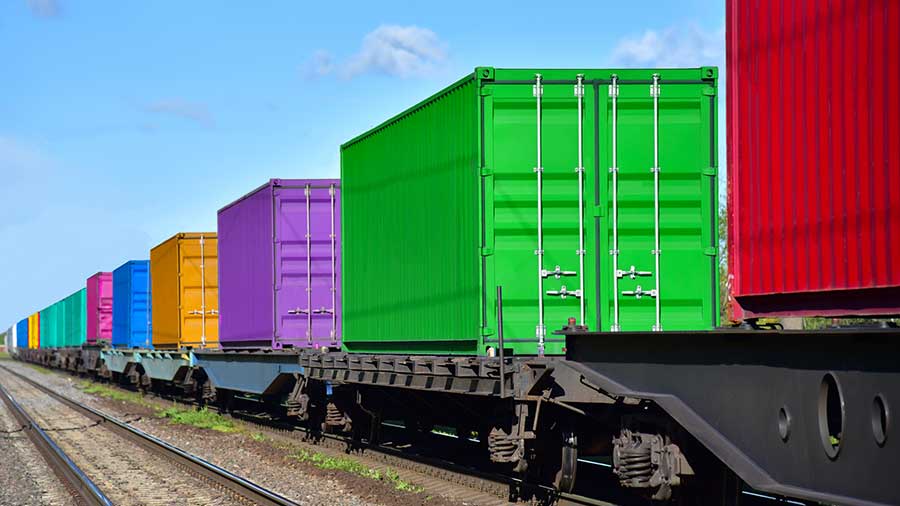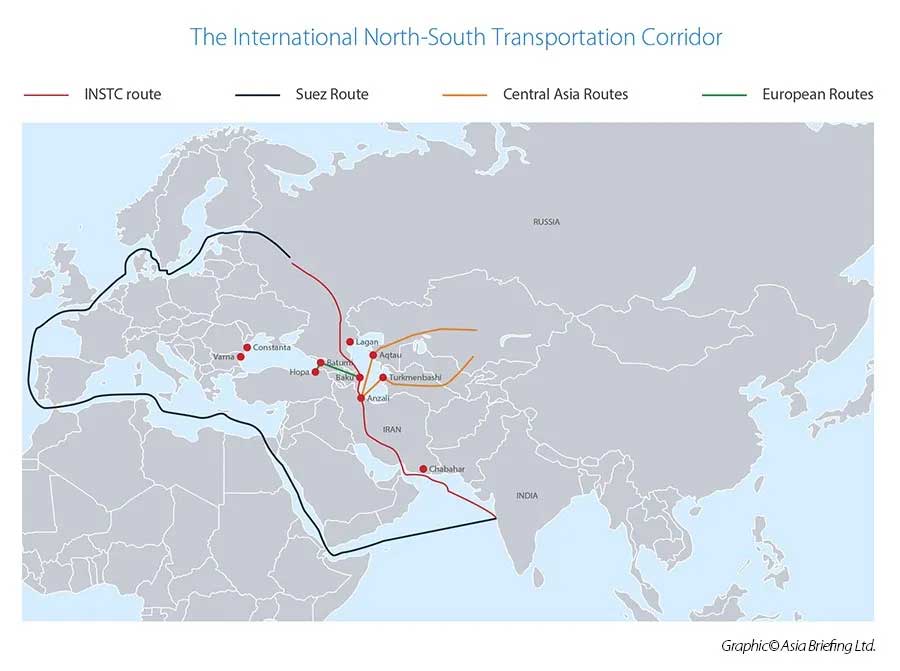China Begins Using Caspian & Black Sea Routes For European Trade

China has begun opening a new route for freight trains from Xi’an (China’s northwest Shaanxi province) to Germany’s Mannheim using multi-modal rail and sea transport through the Black Sea and Caspian Sea, according to ADY Containers in Azerbaijan.
The first train with 42 containers (316 tons) left Xi’an on April 13. The route to Mannheim is 11,300 km and passes through Kazakhstan, Azerbaijan, Georgia, Romania, Hungary, Slovakia, Czech Republic to Mannheim.
The containers are sent to Azerbaijan’s Baku port by a feeder ship after the train arrives at Kazakhstan’s Aqtau port, then by rail to the Georgia’s Poti port and then to Europe via the Black Sea.
An increase in volume of cargo transportation in the region is expected against the backdrop of sanctions against Russia and Iran. Azerbaijan is becoming increasingly important in Eurasian cargo transport. This implementation of regional projects confirms that in terms of international cargo transportation, Azerbaijan is turning into a regional hub. The Baku-Tbilisi-Kars railway is also being integrated into this route.

The BTK line was implemented as a result of Azerbaijan’s efforts, despite pressure from several Western countries who were against the development. With the current situation between Russia and Europe, the route has become a vital connection between Asia and the EU. According to ADY, non-energy products transported through Azerbaijan have increased 65% since 2019.
“Existing infrastructure, also the digitalization of procedures related to international cargo transportation, will ultimately create opportunities for a special contribution to economy of Azerbaijan as a result of the operation of line, which will stretch from China to Germany through Azerbaijan, which will naturally become one of the sources of revenues in non-oil sector, and contribute to the growth of Azerbaijan’s state revenues” said the company.
Azerbaijan MP Azer Badamov said that “New perspectives on economic cooperation of the countries of world have appeared with the Russian-Ukrainian conflict. Importance of the international transport corridors we have created is growing day by day while the traditional routes connecting Asia with Europe are beginning to lose their importance. Azerbaijan has modernized road infrastructure within the country, created new international transport corridors by putting into operation Baku International Sea Trade Port and Baku-Tbilisi-Kars railway by joining the Belt & Road Initiative.”
Baku’s International Sea Trade Port has a transshipment capacity of 10 million tons of cargo per year and can is able to double this volume. “More than five million tons of cargo were transshipped through the port in 2021, which is 20 percent more compared to 2020. This indicates that interest in the routes passing through Azerbaijan is growing,” the MP added.
“The Baku-Tbilisi-Kars railway has potential for the transportation of 6.5 million tons of cargo at initial stage and more than 15 million tons at subsequent stage. These international corridors provided by Azerbaijan allow 15 days savings on transportation from China to Europe, which will become more and more important every day, since China announced the opening of the new route,” Bayramov said.
Related Reading
About Us
Chris Devonshire-Ellis is the Chairman of Dezan Shira & Associates. The firm assists British and Foreign Investment into Asia and has 28 offices throughout China, India, the ASEAN nations and Russia. For strategic and business intelligence concerning China’s Belt & Road Initiative please email silkroad@dezshira.com or visit us at www.dezshira.com





